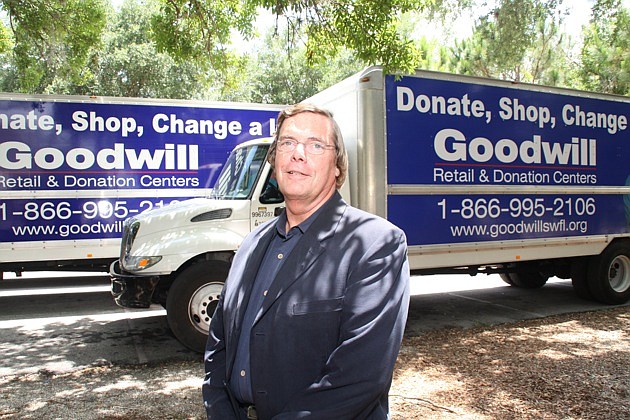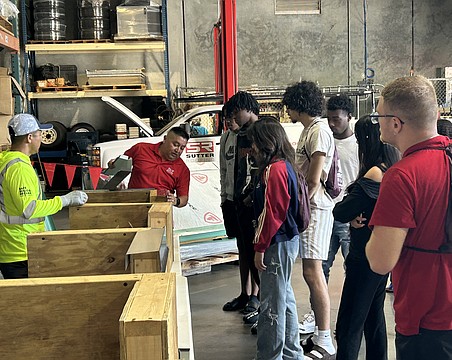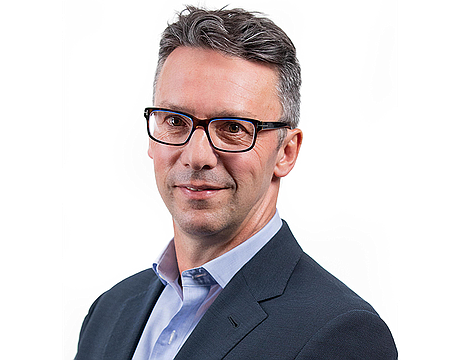REVIEW SUMMARY
Industry. Nonprofits
Trend. Goodwill is expanding into new businesses and territories
Key. Competition from nonprofits may grow as organizations seek new revenue sources.
Tom Feurig is licking his chops.
Rents and land prices have fallen so much that Goodwill Industries of Southwest Florida, the North Fort Myers-based nonprofit he runs, is on a shopping spree.
“This will be an opportunity for us that won't present itself in the next few years, or again,” says Feurig, Goodwill's president and CEO.
With annual revenues of $17.6 million and nearly $32 million in assets, Goodwill has become a heavyweight in a moribund commercial real estate market. The Southwest Florida franchise operates in five counties: Charlotte, Lee, Collier, Glades and Hendry counties.
Goodwill will open its 25th thrift store in August, it runs 15 housing developments and is diversifying into a host of businesses, from janitorial services to used-car sales. It recently even considered buying a crab-trap manufacturer. Geographically, it's opening offices in remote areas such as Clewiston and Immokalee.
Feurig, 59, talks about the current opportunities for Goodwill's expansion more like an eager entrepreneur than a charity chief. “We have to be a successful business,” he says.
As large as Goodwill Industries of Southwest Florida is, Feurig has run much larger organizations in the past. He built a 30-year career as a Catholic hospital administrator, the largest of which was St. Vincent Health System in Little Rock, Ark., which at the time had a $450 million budget.
A disciple of continuous improvement methods such as kaizen and management gurus such as William Edwards Deming, Feurig turned around struggling nonprofit hospitals by bringing modern management techniques. He did the same thing at Goodwill, driving annual revenues up 29% in five years.
A 'magical time'
Goodwill's mission is broad: Remove barriers to help people become independent. With that kind of expansive goal, almost any good business might be worthy of Goodwill's interest.
With all kinds of assets being re-priced lower because of the recession, Feurig says it's a “magical time” for well-managed nonprofits like Goodwill to expand.
For example, Goodwill purchased the 30,875-square-foot Arborgate Shopping Center at the corner of Colonial Boulevard and Treeline Avenue plus eight acres in Fort Myers for $3.4 million earlier this year. The property had sold for $9.3 million just two years ago. Goodwill plans to open a 12,000-square-foot retail store there, its 25th store, and lease the rest.
Goodwill's retail stores generated $14.2 million last year, or 81% of the group's total revenues in 2009. It's a profitable operation; store expenses totaled $9.3 million in 2009. “No margin, no mission,” Feurig quips.
Although store revenues rose nearly 8% in 2009 compared with the prior year, Feurig says competition from traditional retailers have pressured sales. That's because traditional retailers have lowered their prices so much that they've pushed Goodwill to lower prices in response.
Diversification strategy
As profitable as the Goodwill stores are, Feurig is determined to diversify the organization's revenues. When he took over as president and CEO seven years ago, Feurig says 99% of Goodwill's revenues were tied to the stores.
So he started by establishing a shredding business, taking advantage of a government program that seeks out nonprofits to shred sensitive documents such as federal tax returns. Besides the Internal Revenue Service, Goodwill now shreds documents for more than 100 companies in the Fort Myers area.
Goodwill also runs a used-car lot, where it resells vehicles that people donate to the group. However, Feurig says donations have been slower since the Internal Revenue Service published stricter rules for deductions of donated vehicles. And the recession has slowed sales too. “We had to hustle to keep it even,” he says.
Recently, Goodwill launched a janitorial and floor-care service. It has started training disabled and “disadvantaged” people at a 63,000-square-foot facility that is home to Lynx, a back-office company that provides administrative and claims-management services to insurance companies.
Goodwill's newest operation provides carpet cleaning and other kinds of floor care as well as janitorial services such as window washing. Initially, Feurig says margins in the floor-care business will be about 5% to 10%, or about half of the store margins.
Despite Goodwill's tax-advantaged status as a nonprofit, Feurig waves off concerns that he's taking business away from struggling for-profit companies in the area. “America's built on competition,” Feurig says. “We've got to make a buck and we can't subsidize it.”
The organization is considering launching a lawn-care business. As an added benefit, Goodwill would be able to lower the maintenance costs on its 25 stores and 15 housing complexes.
Goodwill has investigated all kinds of businesses. It considered launching a service to convert paper documents to digital copies, but Feurig says he didn't think it would be profitable. It also looked into acquiring a business that makes crab traps, but it didn't create enough jobs. Ideally, Feurig says he's looking for startups that create at least 10 jobs or “spectacular” returns. Goodwill already has about 450 full-time and part-time employees.
Feurig says Goodwill's entrepreneurial spirit is not uncommon. For example, he cites the Miami Goodwill's sewing facility, which makes uniforms for the U.S. armed services. When he ran Goodwill's facility in Traverse City, Mich., employees made wooden survey stakes and birdhouses that were sold in Meijer stores.
Diversification also includes geography. It's pushing to open career centers and other facilities in outlying areas such as Clewiston and Immokalee, areas that haven't been as well served by nonprofits.
Although Feurig is as determined a CEO as you'll find in the for-profit world, he doesn't forget that the ultimate mission of his organization is to help people become independent. The recession certainly has put a strain on his organization, helping more than 10,000 people in 2009, a 25% jump over the previous year.
Out of the hospital
For three decades, Tom Feurig turned around and managed Catholic hospitals. By 2000, he'd had enough.
“After 30 years of it, I finally decided it didn't make me tick anymore,” he says.
Raised in East Lansing, Mich., and a graduate of both Michigan State University and the University of Michigan, Feurig owned a home in Traverse City, Mich. A help-wanted ad in the Traverse City Gazette caught his eye: the Goodwill operation there was looking for a CEO.
“It sounded fun to me,” Feurig chuckles. Friends and family thought it was a “suicidal career bent.”
After all, Feurig was going to trade running a hospital system with a $300 million budget for a $4 million Goodwill operation “without a psychiatric evaluation.”
From 2000 to 2002, Feurig turned around the struggling Goodwill operation in Traverse City, boosting annual revenues 50%. It had all the hallmarks of a dysfunctional nonprofit organization: the management ranks were decimated, the board of directors was constantly interfering in the daily operations, money was scarce and there was no strategic direction.
Word got around about Feurig's turnaround in Michigan and he moved to the fishing hamlet of Matlacha in Lee County, lured by the prospects of running a larger Goodwill in a fast-growing area.
The Southwest Florida Goodwill faced some of the same organizational problems that its counterpart in Traverse City had, but its balance sheet was in better condition, Feurig says.
The challenge in Southwest Florida was that Goodwill wasn't well known, even among peers at United Way and the Red Cross. That changed when Hurricane Charley swept through the area in 2005. “We stretched out and took visible leadership,” says Feurig. “That was a turning point.”
Now, Goodwill frequently responds to requests for assistance, such as helping establish a career center in a low-income trailer park and renovating a community center in a poor neighborhood of Fort Myers. Feurig and his staff are often out in public, touting Goodwill everywhere they go.






